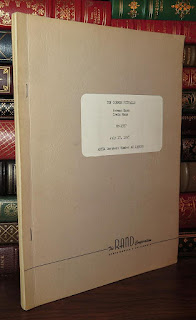Hamid Khan - Critical study of propaganda & hybrid / 5th generation war for the purpose of narrative building (2021)
Abstract
Undoubtedly this 21st century is the century of peak of modern sciences and media war. With every passing day the concept of conventional war is getting obsolete. In modern methodology war rooms are actually consists of super computers spreading information of your choice whether factual or not. In fact it’s all based on narrative building and changing public perception. We have seen in recent history how media was used/misused to achieve desired results in narrative building across the world.
In this thesis I have tried to research the effectiveness of Propaganda on global level. How different countries have actively used tools of Hybrid war or may also be called 5th generation war to achieve geo political and strategic targets. Despite of knowing the consequences and catastrophic damages of such propaganda. In most cases it resulted in mass losses of human lives and complete destruction of Infrastructures. While in some cases it started wars between countries (Yemen & Saudi Arabia, Ukraine & Russia) and others. Also hybrid war brought many nations on brink of big conventional wars like Pakistan & India, and Standoff between China & India. Even in some cases it could have caused Nuclear wars between two countries for example North Korea & USA, Pakistan & India.
As case study I have studied Iraq war (US & NATO Invasion) which was legitimized by United Nations approved on reports about presence of Weapon of Mass Destructions (WMD’s). Which was later proven all false and all reports , Media reports , documents everything was proven fabricated to build certain narrative to mislead the entire 170+ Member Nations of the world in UNO. Hence it’s not only one of the most recent and classic example of White Propaganda. This might be considered as biggest successful propaganda campaign of 20th century which resulted into millions of Iraqis undue massacre, A complete destruction of oil rich economically stable country which caused loss of trillions of dollars and complete infrastructure demolition.
Furthermore in this thesis I have discussed fatal impacts of false propaganda, types of propaganda. Importance of knowing and countering propaganda and hybrid war tools to secure national interest. A chapter of thesis explains how a state can use propaganda for multiple uses to divert attentions from its failures and achieving success in certain narrative building.
A brief critical study of Strategic affairs based on media warfare is also part of this thesis. Every state desire to secure its strategic interests, which type of methodologies being used in modern day policy making of strategic affairs is also a part of this research. There’s no doubt every country like to achieve best for its strategic interests but what kind of illegal, unethical, unlawful, inhumane & ill methods are used as state agenda is also discussed. Since our planet is already facing many challenges of its destruction ( environmental issues, Covid-19 Type Pandemics & others ) than why this risk of world war , nuclear wars due to illness of controlling or conquering the world. All that is happening on the name of strategic interests.


































